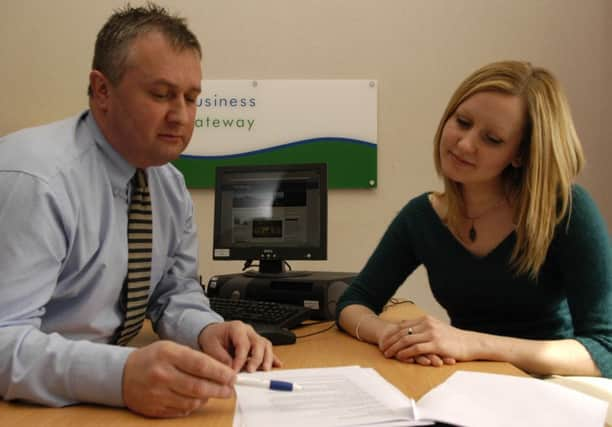Tom Ogilvie: I love it when a business plan comes together


As the nation is recovering from another successful season of the Great British Bake Off, which as per usual finished off with a series of fantastic master classes, it seems appropriate to look at one of the most important parts of creating a successful start-up company – writing a business plan. There is always a debate whether the business plan is actually required and we have all heard of great businesses started with a quick drawing at the back of a napkin or a ten minute investor pitch. However, these are exceptions to the rule, few and far between.
For most people, writing a business plan is the first challenge they fac – and the term means different things to different people and is often confused with the financial projections that make up a part of a good plan.
Advertisement
Hide AdAdvertisement
Hide AdSo why is the business plan so important? It is a selling document, it explains clearly and concisely what the company is going to do, how will it operate and make money. It also describes who are the customers and demonstrates that the team has the right skills and experience to deliver.
From my own business experience and from my close involvement in the Converge Challenge over a number of years, one of the key factors is to clearly define how big the market opportunity is: is it a million, tens or hundred of millions or, perhaps, several billions. And it is simply not sufficient to provide a basic statement. Instead, founders are required to validate your own thoughts with practical evidence.
Many business plans tend to rely on generic market information with an assumption that because the new company would be offering something novel and unique it would most certainly gain a percentage of the total market.
To give an example, I recently read a very well-written business plan that described in some detail what the product could offer. However, on the market opportunity, it simply contained a number of tables showing that the market globally was worth several billion pounds. This team made the assumption that, due to the level of innovation in their product they could confidently capture 5 per cent of the global market, which would result in an incredibly successful company. Five per cent does not sound like a lot but for a start-up business yet to secure a first sale, one would need to describe in great detail how they would achieve this target.
In contrast, one of the best examples of market validation that I saw recently was in a business plan prepared by a new start-up company It had invested time and energy into researching the market scale but also in seeking independent validation.
This resulted in their plan having a fully comprehensive understanding of each market segment and how priorities and interest can be different depending on what the solution could offer.
While everyone recognises there are no guarantees that this approach will lead to sales, clearly the benefit of having an end user to challenge and inform the discussion as part of the business planning process makes a lot of sense.
Over the past few years the business start-up process in Scotland has taken on more prominence, with a wide range of business support activities and programmes that help and encouragen ew entrepreneurs. In my experience, improving the business planning process is about understanding what work is required as part of that process.
Advertisement
Hide AdAdvertisement
Hide AdThe foundations of a good business plan start with the ability to validate in practical terms the scale and scope of the market opportunity, as this can only benefit all parties. It remains a huge challenge to help encourage and create more people that not only want to set up a new enterprise but who can go on and establish the next generation of entrepreneurs who are looking to add to Scotland’s success in the future!
• Tom Ogilvie, enterprise manager staff, Edinburgh Research and Innovation, The University of Edinburgh